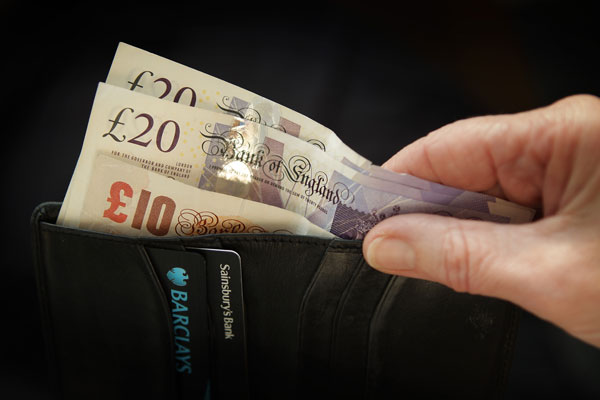‘I’m not loaded, I’m just ordinary,’ protested a wealthy friend of mine, when another chum teased him about his money. ‘Oh yes,’ his tormentor responded wryly, ‘you’re one of those ordinary millionaires, not one of the rich ones.’
It made me smile, and it also made me think. Many of us, like my well-cushioned chum, have a skewed notion of how well off we really are.
Most of us probably think we are normal, typical, ordinary, average – but often have little idea what average actually is.
When we see headlines about FTSE 100 chief executives earning millions, it makes those of us languishing well below that bracket feel a bit worse about our own income (or is that just me?).
Next to a big league CEO, we might feel like a pauper, but if median UK earnings of £22,487 are the yardstick, things suddenly look a whole lot healthier.
Reports on the recent death of the Duke of Westminster suggested there may be some widespread false assumptions about typical levels of wealth.
A number of articles focused on the fact that much of the late Duke’s £9 billion estate would be exempt from inheritance tax, suggesting it is unfair, which is a fair point.
But they also suggested ‘everybody else’ or ‘most people’ are forced to pay punitive death duties.
Utter rot: around 95 per cent of estates are not liable for inheritance tax because they are worth less than the threshold of £325,000. The inheritance tax take is rising as property values increase, but from a low base. Currently, it accounts for less than 1 per cent of tax revenues.
Speaking of house prices, a casual observer could be forgiven for thinking the country is carpeted with million pound properties, and that young people are permanently priced out of ownership.
Outside the London bubble, though, it’s really not like that: the average house price nationwide is a much more modest £213,927. Research by Santander found that just under 500,000 homes were valued at £1 million or more in February this year, equivalent to only 1.77 per cent of all properties.
When you tire of checking out how much your mates’ houses are worth on Zoopla, there is fun to be had on an unlikely website: the Institute for Fiscal Studies. It has an online tool allowing you to work out where you stand financially compared with your fellow citizens.
A couple with two children under 13, a council tax bill of £1,200 a year and household income of £50,000 a year, for example, might not feel particularly flush, but they are better off than 74 per cent of the population, or 45.7 million people.
Culturally, we Brits like to downplay our wealth. Rich people will claim they have a ‘little cottage’ when they actually mean they have a pile to rival Blenheim palace.
That’s quirky and sometimes charming, but the tendency to underestimate how well off we are seems to play out on a national scale and it can sometimes lead to a loss of perspective and needless pessimism.
Following the Brexit referendum, there has been uncertainty in the air, but in or out of the EU, we are just not that badly off.
Commentators often lament our £1.6 trillion national debt, but when was the last time you read a piece celebrating our biggest national asset? Probably never.
I’m talking about ‘human capital’ – the monetary value of our collective skills, knowledge and attributes – which the Office for National Statistics reckons is worth £19.23 trillion.
For all the uncertainties we face, Britain is a wealthy and resilient country and it’s full of resourceful and well-qualified people.
So cheer up: if you’re reading this, you’re one of them, and you’re almost certainly richer than you think.
Ruth Sunderland is City Features Editor of the Daily Mail






Comments